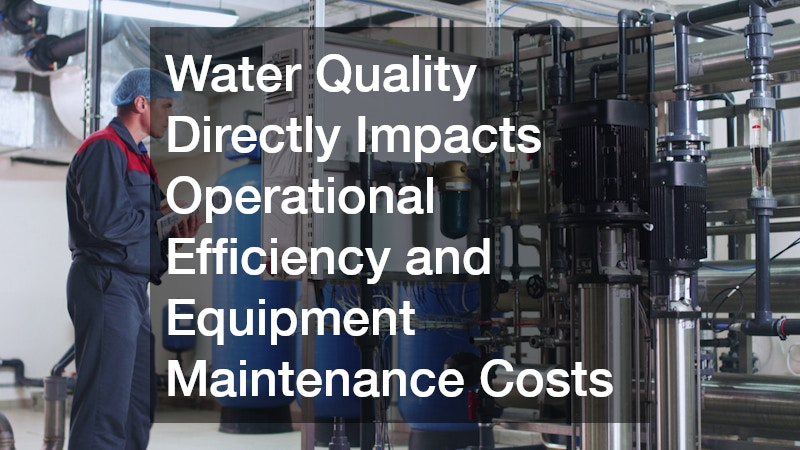With the rise of technological solutions in everyday home management, Electronic Water Treatments have emerged as an innovative method for improving water quality. These treatments help combat issues related to hard water, which is rich in minerals like calcium and magnesium. Their application ensures better efficiency and prolonged life of household appliances, attributing to both environmental and economic benefits.
Understanding the principles of water treatments is vital for homeowners looking to enhance their water systems. At the core, these systems utilize electromagnetic waves to prevent scale buildup, a common issue that decreases the overall quality of water. By reducing scale, not only is water purity elevated, but the pressure on household plumbing and appliances is also minimized.
The demand for these treatments is continually increasing as more are realizing the advantages of improved water quality and appliance durability. Adoption of Electronic Water Treatments can be seen across various regions, primarily driven by the need to address hard water challenges and improve water utilization efficiency in homes and industries.
What are Electronic Water Treatments?
Water Treatments are devices that use electric impulses to treat hard water. The technology alters the properties of the minerals in water, reducing their ability to adhere to surfaces as scale. As a result, these treatments offer a chemical-free and energy-efficient solution to water hardness problems.
The major advantage of using Electronic Water Treatments lies in their ease of installation and maintenance. Unlike other water-softening methods, these systems do not require salt or regular maintenance, making them an attractive option for many households. Additionally, their non-invasive nature means that there are no changes to the home’s existing plumbing infrastructure.
Electronic Water Treatments contribute to the sustainability efforts by avoiding chemical discharge into the environment. Traditionally, ion-exchange water softeners leave behind brine waste, but these electric treatments eliminate such concerns. Hence, they present an eco-friendly alternative for enhancing water quality.
How Do Water Treatments Improve Water Quality?
By applying electric fields, these devices disrupt the formation of scale-producing minerals, causing them to remain suspended in water. This process ensures that pipes and fixtures remain free of deposits that can harbor bacteria and other contaminants.
In addition to scale prevention, water treatments that are electronic enhance water’s lathering capacity. Soft water is known to be better for bathing, washing, and cleaning, reducing the amount of soap and detergent needed. This not only improves the washing efficiency but also minimizes the release of phosphates and other chemicals into aquatic ecosystems.
By maintaining cleaner pipelines, the treatments also ensure that the quality of drinking water remains high. As mineral deposits are minimized, risks of water stagnation and bacterial growth are significantly reduced, providing safer water throughout the household.
Appliance Longevity
Household appliances exposed to hard water typically experience reduced efficiency and a shorter operational lifespan. Electronic Water Treatments help by preventing the buildup of scale on heating elements and surfaces within appliances. Consequently, this reduction in scale buildup translates into more efficient heating and reduced energy consumption.
For instance, water heaters and dishwashers operate more effectively when free from scale, leading to lower electricity or gas bills. This extended efficiency not only saves costs but also reduces appliance wear and tear, resulting in a longer lifespan and fewer repairs. Over time, the accumulated savings make Electronic Water Treatments a worthwhile investment for homeowners.
In addition to cost savings, protecting appliances from scale buildup also entails a significant decrease in environmental impact. By prolonging the life of household gadgets, Electronic Water Treatments reduce the demand for manufacturing new units, thereby conserving valuable resources and reducing landfill waste.
Water treatments offer a modern solution to the age-old problem of hard water, efficiently improving both water quality and appliance longevity. By preventing scale buildup, these treatments maintain cleaner pipelines, enhance the operational efficiency of household appliances, and promote overall environmental well-being.
The simplicity and eco-friendly nature of Electronic Water Treatments make them an appealing choice for homeowners seeking sustainable water solutions. As awareness and adoption of this technology increase, the cumulative benefits for both individuals and communities become more pronounced, offering a pragmatic approach to water management.
Ultimately, incorporating water treatments is not only an investment in one’s home environment but also a step towards a greener future. The enhanced quality of life, cost savings, and environmental conservation underscore the significant impact of this innovative water treatment solution.
Electronic Water Treatments are gaining traction in commercial and industrial sectors, where water quality directly impacts operational efficiency and equipment maintenance costs. Facilities such as hotels, restaurants, and manufacturing plants are turning to this technology to protect boilers, cooling systems, and plumbing infrastructure from mineral scaling. The scalability of electronic systems makes them a flexible and adaptable solution for various sizes and applications.







